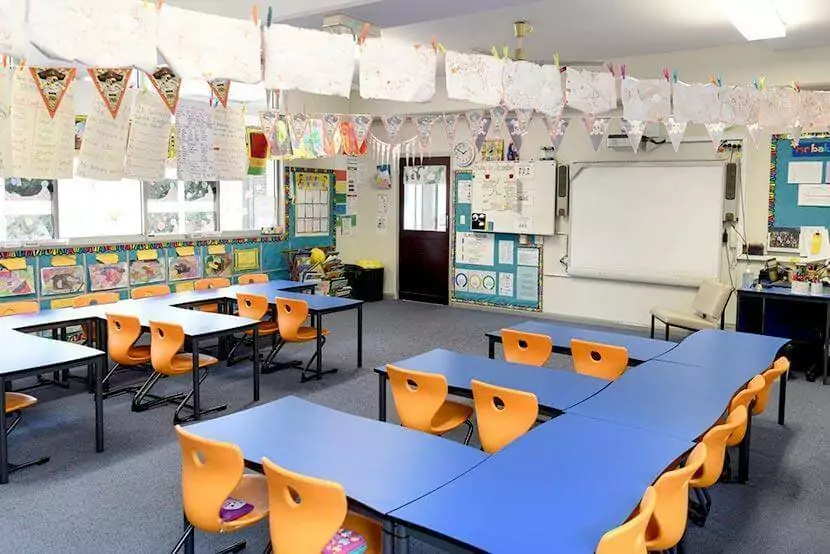
Education authorities have paused the national roll-out of controversial school-based education assessments for children with additional needs.
New system aims to make school principals responsible for key aspects of education needs assessments for vulnerable children.
Education authorities have paused the national roll-out of controversial school-based education assessments for children with additional needs following concerns among principals, teachers’ unions and campaigners.
Schools were informed last week that under the changes principals would be responsible for completing forms which form a key part of the education needs assessment process.
This follows a court ruling in October 2021 which found there is now a legal obligation to provide an assessment of education needs as part of the HSE’s assessment of need process.
Principals and teachers’ unions expressed alarm at the move which they said would add to their workload and potentially impact on time allocated to vulnerable pupils by special education teachers.
In addition, disability groups such as autism charity AsIAm warned that principals did not have the expertise to identify children’s support needs and warned that the system was potentially unlawful.
On Thursday, following a meeting with education stakeholders, the Department of Education said assessments of need are being trialled across a number of schools.
“The Department is committed to further engagement with the education stakeholders on foot of the extended trialling and to work collaboratively to resolve any outstanding issues,” it said.
Stakeholders present at the meeting said they were also told a national roll-out of the system is being put on hold and no more requests for assessments will be initiated in schools.
INTO general secretary John Boyle said he welcomed the decision to “pause” the proposed new process which, he said, involved “passing the buck” to school staff.
“Our teachers must be given the time, space and resources to do what they do best — to support the pupils in their care,” he said.
“Endless demands for written reports and an ever-growing level of red tape only serves to pull teachers away from their primary focus. At the heart of this problem, like so many others, is a lack of investment in the critical wraparound services our schools rely on.”
In a joint statement, second level teachers’ unions — the Association of Secondary Teachers Ireland and Teachers’ Union of Ireland — said the proposed system was “unwieldy” and an “unacceptable imposition on overburdened school staff”.
However, solicitor Gareth Noble, who specialises in child law, said that while the proposals were deeply flawed and potentially unlawful, halting assessments was not the solution.
“My concern with this is that these important assessments will be paused and no such further educational assessments will be done,” he said.
“That is an unlawful approach in itself where the Court of Appeal has made it clear that such assessments are provided for under the Disability Act. It is not within the gift or the power of teaching unions or the NCSE to pause the statutory rights of children.”
The Department of Education said it had engaged with the unions, management bodies and a number of schools prior to the introduction of the trial assessment of needs process in schools.
“Engagement occurred in June to inform unions and management bodies of this process and continued with feedback on the trialling process to stakeholders in September. The Department committed to ongoing engagement on this process,” it said.
The department said that is not expected that individual schools will have to comply with “large numbers of individual requests for assessments, but if this happens a NCSE resource team “will work closely with the schools concerned to facilitate the process”.
It added that the department and NCSE were satisfied that the educational component of the assessment process was child-centred, in line with educational good practice and ensures that schools, who hold all of the relevant information on the child, are supported in providing this detail to the HSE.
Earlier in the day, the Irish Primary Principals Network (IPPN) had also expressed concern over the workload issues for “over-burdened” school leaders.
Pairic Clerkin, chief executive of the IPPN, also questioned the legality of the system and the decision of education authorities to withdraw Covid-era administrative supports from primary schools.
“This is yet another workload issue being put on the shoulders of school leaders. At the same time that this is happening, the Department of Education has pulled release or administrative days for deputy principals,” he said.
Disability campaigners have also expressed alarm over the consequences for vulnerable children.
Adam Harris of AsIAm said the proposed model of assessment was “little more than a copy and paste” exercise from existing documents in schools.
“This is not an assessment by any standard including the standards generally demanded by the NCSE and Department for a range of disability supports,” he said.
“The support a child gets in a schools does not equate to the needs they may have and there is a huge variances in the quality of documentation from school to school, making the system unworkable and inequitable.”
The Department of Education had not issued a comment at the time of writing.
See the original article on the The Irish Times.
Get in touch
Leaders in our field and winners at the Irish Law awards we have proven expertise in immigration and international law, child and family law and personal injury litigation.
Tel: +353 1 679 0780
Email: info@kodlyons.ie








